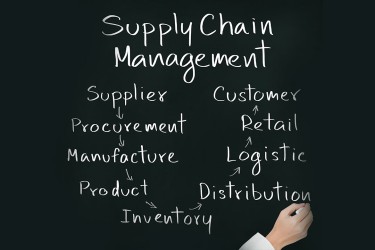02 Nasr Rd. Nasr City – Cairo – Egypt
info@edge-cost.com
002-01226269782

Supply Chain Process
Certainly! Supply chain management in the construction industry involves the coordination and management of the flow of materials, equipment, and information from suppliers to the construction site. It aims to optimize the procurement, storage, transportation, and distribution of resources to ensure smooth project execution and minimize costs.
Here are the key steps involved in the supply chain management process in the construction industry:
- Supplier Selection: The process begins with identifying and selecting reliable suppliers who can provide the required materials, equipment, and services. Factors such as quality, cost, delivery time, and supplier reputation are considered during the selection process.
- Procurement Planning: Once suppliers are selected, procurement planning takes place. This involves determining the quantity and timing of material and equipment purchases based on project requirements and schedules. It also includes establishing procurement contracts and negotiating terms and conditions.
- Material and Equipment Procurement: In this step, materials and equipment are procured from the selected suppliers. This may involve issuing purchase orders, tracking deliveries, and ensuring that the quality and specifications of the procured items meet the project requirements.
- Inventory Management: Construction projects often require maintaining an inventory of materials and equipment on-site. Effective inventory management ensures that the right quantities of materials are available when needed, minimizing delays and excess inventory costs.
- Transportation and Logistics: The transportation and logistics aspect of supply chain management involves coordinating the movement of materials and equipment from suppliers to the construction site. This includes selecting appropriate transportation modes, optimizing routes, and managing any customs or regulatory requirements.
- On-Site Material Handling: Once materials and equipment arrive at the construction site, they need to be efficiently managed and distributed to the appropriate locations. This involves organizing storage areas, implementing proper handling procedures, and ensuring timely delivery to the work areas.
- Information Management: Effective supply chain management relies on accurate and timely information exchange. This includes sharing project requirements, tracking order status, and communicating any changes or issues with suppliers, contractors, and other stakeholders.
- Supplier Relationship Management: Building strong relationships with suppliers is crucial for successful supply chain management. This involves regular communication, performance evaluation, and collaboration to address any challenges and improve overall supply chain efficiency.
By implementing effective supply chain management processes, construction companies can enhance project productivity, reduce costs, minimize delays, and improve overall project performance.
EDGE All Rights Reserved © 2026
Designed By CO-marketingagency
